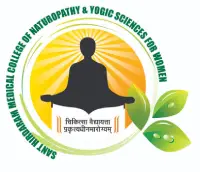DEPARTMENT OF YOGA & YOGA THERAPY
Yoga refers to traditional physical and mental disciplines originating in India. The word is associated with meditative practices in Hinduism, Buddhism and Jainism. It also refers to one of the six orthodox schools of Hindu philosophy. Raja Yoga, compiled in the Yoga Sutras of Patanjali, and known simply as yoga in the context of Hindu philosophy, is part of the Samkhya tradition. Many other Hindu texts discuss aspects of yoga, including Upanishads, the Bhagavad Gita, the Hatha Yoga Pradipika, the Shiva Samhita and various Tantras.
The Sanskrit word yoga has many meanings, and is derived from the Sanskrit root “yuj”, meaning “to control”, “to yoke” or “to unite.” Patanjali’s writing also became the basis for a system referred to as “Ashtanga Yoga” (“Eight-Limbed Yoga”).
First Year – Yoga Practices
Teaching Hours – 175 hours in 1 year ( Theory – 25 hours; Practicals – 150 hours)
Second Year – Yoga Philosophy
Teaching Hours – 375 hours in 1 year ( Theory – 200 hours; Practicals – 175 hours)
Third Year – Yoga Applications
Teaching Hours – 325 hours in 1 ½ year (Theory – 150 hours; Practicals – 175 hours)
YOGA THERAPY is the science of applying the various techniques of yoga in a variety of illnesses and conditions, to facilitate optimal health, healing and awakening. Hence, it could be called a system of health care that helps treat human indispositions as naturally as possible, to alleviate pain and suffering through set of exercises, both physical and mental. Ideally, yoga therapy is preventive in nature, as is Yoga itself, while being curative in many instances, soothing in others, and restorative in most.
So, where traditional Yoga was primarily concerned with spiritual transcendence, yoga therapy aims at holistic treatment of a variety of psychological or psychosomatic disorders ranging from sinusitis and asthma to emotional distress.
Final Year – Yoga Therapy
Teaching Hours- 300 hours in 1 ½ year (Theory – 150 hours; Practicals – 150 hours )

